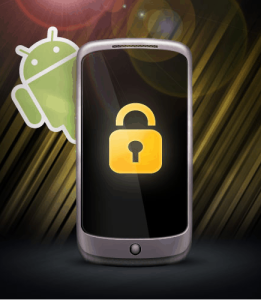 Modern-day VPNs are not just that simple tool you install on your computer only to get rid of frustrating geo-blocks. Virtual Private Networks are real shields that protect us from potentially dangerous public Wi-Fi hotspots, data-leaking apps and being tracked around as we move around in both the real and digital world. More than you need antivirus on your computer today, your phone is in need of protection as it stores and generates more sensitive data than we realize. Fortunately, today the vast majority of VPN providers already offer Android support, with proper native apps and different protocols. However, despite that both privacy-concerned and everyday mobile users already know that everyone should use a VPN for mobile, there are a few details you should look at to avoid being cheated, particularly with free VPN apps.
Modern-day VPNs are not just that simple tool you install on your computer only to get rid of frustrating geo-blocks. Virtual Private Networks are real shields that protect us from potentially dangerous public Wi-Fi hotspots, data-leaking apps and being tracked around as we move around in both the real and digital world. More than you need antivirus on your computer today, your phone is in need of protection as it stores and generates more sensitive data than we realize. Fortunately, today the vast majority of VPN providers already offer Android support, with proper native apps and different protocols. However, despite that both privacy-concerned and everyday mobile users already know that everyone should use a VPN for mobile, there are a few details you should look at to avoid being cheated, particularly with free VPN apps.
Best VPNs with Android Apps
IPVanish
ExpressVPN
PureVPN
Free VPN Apps and Their Dangers
Whenever you find any software that’s completely free, you should immediately ask yourself what’s the catch. In fact, ad-supported free VPNs can often be more of a problem than a solution both for computers and mobile devices. Android is no exception, and because we also know how unsafe most of the Play Store’s apps are, you must pay close attention when installing any of these free VPNs. The first red flag is the amount of personal details these apps will request access to (mobile ID, camera, mic, location, etc.) and even if they don’t, it doesn’t mean you’re safe. Because you’re not paying for the service, these VPNs need to assure their financial survival somehow and one of the main practices is using cookies and other tracking methods to bombard you with targeted ads (so you can also say goodbye to no-log policies). Likewise, the big majority of free VPNs will offer you obsolete protocols and encryptions that only fool you regarding safety and anonymity.
To sum up, it’s always best to go with a trusted and fully tested VPN service. Many of the world’s best providers offer free versions, trials or nice money-back guarantee periods so you can test the service for free on your Android device.
Tips for Using a VPN on Android
Regardless of what VPN provider you choose, using it on Android-powered devices can grant you some sweet deals. One of the main ones is accessing the Play Store of another country, either to download that app that seems to take forever to become available in your own country, or to enjoy some regional discounts. Regarding price discounts, VoIP services can also become cheaper if you fire up your VPN and choose to connect to the most suitable server. Regarding suitable servers, if you want to stream your favorite series’ latest episode you’ll want to connect to the server closest to you to enjoy quality streams. The same happens with protocols, since these work on a balance between safety and speed, so unless you choose OpenVPN, you’ll always sacrifice one to boost the other, which can be useful depending on your purpose at the time.
Best VPN Services of 2024
| Rank | Provider | Info | Visit |
1
|
Editor's Choice 2024
|
|
|
2
|

|
|
|
|
3
|
|
|
Why Use a VPN on Android?
 Using a VPN on your Android device is more indispensable than it seems. In fact, with your mobile device you’re much more likely to connect to any public Wi-Fi hotspot, such as in airports, coffee shops and other places, which may seem safe but simply… aren’t. Crowded places are one of the hackers’ favorites to collect as much personal information as possible from completely unaware victims. Not only they create the so-called evil twins fake hotspots, but a simple breach in a network can also allow them to easily spy on your online activity. This can quickly escalate to a really serious issue if you happen to manage your bank account or any other personal details at the time – something you should always avoid doing while connected to public Wi-Fi. In addition, VPNs are also useful to protect you from dodgy apps carrying malware and to allow safe streaming of video content without having to worry about ISP throttling.
Using a VPN on your Android device is more indispensable than it seems. In fact, with your mobile device you’re much more likely to connect to any public Wi-Fi hotspot, such as in airports, coffee shops and other places, which may seem safe but simply… aren’t. Crowded places are one of the hackers’ favorites to collect as much personal information as possible from completely unaware victims. Not only they create the so-called evil twins fake hotspots, but a simple breach in a network can also allow them to easily spy on your online activity. This can quickly escalate to a really serious issue if you happen to manage your bank account or any other personal details at the time – something you should always avoid doing while connected to public Wi-Fi. In addition, VPNs are also useful to protect you from dodgy apps carrying malware and to allow safe streaming of video content without having to worry about ISP throttling.
Best VPN Services of 2024
| Rank | Provider | Info | Visit |
1
|
Editor's Choice 2024
|
|
|
2
|

|
|
|
|
3
|
|
|
Get the Best VPN Deals
Want to stay up to date on the latest VPN news and discounts? Get exclusive offers and deals sent straight to your inbox!


